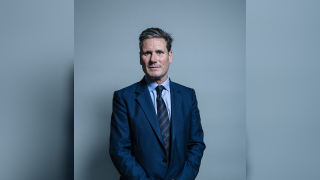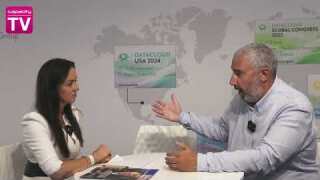The MEF 3.0 Transformational Global Services Framework aims to help telcos to deliver the dynamic performance and security required as demand for increased bandwidth and more agile services grows.
MEF 3.0 is the follow-up to Carrier Ethernet 2.0 (CE 2.0) and sees the global standards body move beyond carrier Ethernet to look at automated and virtualised services by providing a suite of LSO (lifecycle service orchestration) APIs that offer an on-demand, cloud-centric service, MEF said.
MEF unveiled the framework, which includes much shorter testing time for certification of new services, at the MEF17 event in Orlando, Florida.
Speaking at the launch, MEF chairman Nan Chen said: “MEF 3.0 is the … next step in our journey to transform the industry with services and networks that are easy to manage and monetise, and that deliver lasting value to its customers. We are unleashing the full potential of industry innovation by enabling dynamic services to be orchestrated across multiple provider networks powered by LSO, SDN and NFV.”
Nearly 150 companies currently sell CE 2.0 certified products, forming a significant proportion of the estimated $80 billion carrier Ethernet market.
MEF 3.0 comprises four main “pillars” that form the new concept: standardised orchestrated services; open LSO APIs; service and technology certifications; and expanded community collaboration. The MEF 3.0 service family includes dynamic carrier Ethernet, wavelength, IP, SD-WAN, security-as-a-service, and other virtualised services that will be orchestrated over programmable networks using LSO APIs.
MEF is increasing the agility of its certification programmes to accelerate availability and adoption of MEF 3.0 certified services and technologies. It is also looking at expanding collaboration across its community by working with a number of other industry bodies, including the Global Leadership Forum (GLF), TM Forum, the GSMA and others on open-source projects and standards in order to create a shared vision of dynamic services orchestrated across automated networks.
Multiple providers
MEF’s LSO Reference Architecture helps guide agile development of standardised LSO APIs that enable orchestration of MEF 3.0 services across multiple providers and network technology domains.
Carriers including AT&T, CenturyLink and Orange are lining up to support the first software kits that allows service providers to orchestrate connectivity services. Alessandro Talotta, chairman and CEO of Sparkle, said: “MEF 3.0 is the next step to fully empower our customers with dynamic control, efficiency and assured quality of service over end-to-end sophisticated connectivity and cloud solutions in a multi-provider global network ecosystem.”
Mirko Voltolini, head of network on demand at Colt, said: “Colt is an active member of MEF and a strong advocate of its efforts in standardising and simplifying the adoption of interoperable connectivity services. MEF 3.0 builds on the solid platform established by CE 2.0 and widens its scope to include services beyond carrier Ethernet. We expect MEF 3.0 will replicate the success of CE 2.0 and accelerate carrier to carrier business interactions with the adoption of a rapid and agile approach to define standards.”
MEF announced two industry-leading releases at a conference in The Hague: the Sonata lifecycle service orchestration (LSO) software development kit, and the Presto SDK for orchestrating connectivity services over multiple network technology domains, which both tie-in to MEF 3.0.
A tremendous amount of collaborative work has been going on to build a global community of automated, software-defined and interconnected networks that will support orchestration of on-demand services,” added Chen.
Sonata is backed by a number of carriers, including AT&T, Orange, Colt, CenturyLink and PCCW Global, as well as hardware and software vendors. Contributors to Presto include Century-
Link, Cisco, Ericsson, Huawei, NEC and Nokia. Tara Cummings, solution architect at Ericsson, said: “The Presto SDK highlights the agile process at MEF that enables acceptance, implementation and feedback for specification standards. This collaborative effort combined with software and networking expertise provides an excellent reference implementation that removes ambiguity and reduces the learning curve that comes with interpreting standards.”




